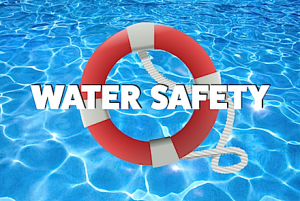
Water Safety for Children
Water safety is of paramount importance when it comes to protecting your child from potential risks and accidents. Whether it’s at the pool, beach, or even a bathtub, implementing necessary precautions and educating your child about water safety can help prevent tragic incidents. Here are some essential tips to keep your child safe around water:
-
Supervision: Never leave your child unattended near water, even for a moment. Accidents can happen in seconds, so designate a responsible adult as a designated water watcher to ensure constant supervision.
-
Teach Swimming: Enroll your child in age-appropriate swimming lessons taught by certified instructors. Learning to swim not only builds confidence but also equips them with essential skills to navigate water safely.
-
Water Confidence: Encourage your child to develop a healthy respect for water by exposing them to different aquatic environments gradually. Start with shallow pools and gradually progress to deeper water as their confidence grows.
-
Pool Fencing: If you have a pool at home, ensure it is fenced off on all sides with a self-closing and self-latching gate. This barrier acts as an added layer of protection and prevents unsupervised access.
-
Life Jackets: Whenever your child is near open water, ensure they wear an appropriately fitted Coast Guard-approved life jacket. This is crucial even if they know how to swim as it provides extra buoyancy and safety in case of accidents.
-
Establish Rules: Set clear rules and boundaries for your child regarding water safety. Teach them to ask for permission before entering the water, to stay in designated areas, and to never run or push others near water.
-
Be Cautious with Floatation Devices: While floatation devices like water wings or inflatable toys can provide some support, they should never be relied upon as a substitute for supervision or a life jacket. These devices can deflate or slip off, putting your child at risk.
-
Drain Safety: Teach your child about the dangers of pool drains and emphasize the importance of staying away from them. Long hair, loose clothing, or jewelry can become entangled in drains, leading to a potentially life-threatening situation.
-
Sun Protection: Don’t forget about sun safety! Ensure your child wears a hat, applies waterproof sunscreen, and takes regular breaks in the shade to avoid sunburn and heatstroke.
-
Learn CPR and First Aid: Enroll yourself in CPR and first aid courses so you can respond swiftly and appropriately in case of an emergency. Knowing these lifesaving techniques can make a critical difference while waiting for professional help to arrive.
By implementing these water safety measures and teaching your child about potential hazards, you can create a safer environment for them to enjoy water activities. Remember, consistent supervision and education are key to keeping your child safe and allowing them to develop a lifelong love and respect for water.
Red Cross Water Safety Program






